PlanITROI maintains a closed-loop Environmental Management System that is founded on the stringent ISO 14001 and R2v3 standards.
PlanITROI has maintained “green” ITAD environmental policies since 2001 and has been referred to as “being green before the term was popular.”
PlanITROI Core Environmental Policies:

ZERO LANDFILL.
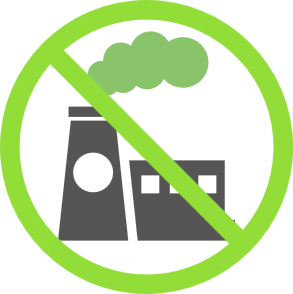
ZERO INCINERATION.
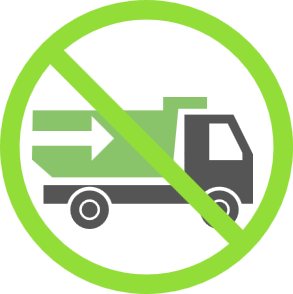
NO EXPORT.
NO E-WASTE.
PlanITROI: A History of Being Green
PlanITROI has maintained a sustainable IT and “Green” orientation since the founding of the company and has been at the forefront of the Green and Sustainable IT movements for nearly two decades. We have consistently advocated that corporations and government agencies keep their retired IT assets out of the waste stream and the world’s landfills. This is not just because zero-landfill policies are more eco-friendly, but because we have long recognized that there is a strong global demand for high quality refurbished, and specifically, our Certified Nusedsm, IT assets.
PlanITROI is committed to maintaining the highest levels of environmental responsibility and takes every precaution to prevent devices from ending up in the world’s landfills or rivers. PlanITROI maintains a closed-loop Environmental Management System. The company’s processes are ISO 45001, ISO 14001, ISO 9001 and R2v3 Certified.
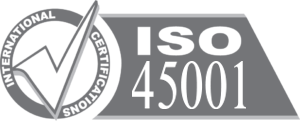
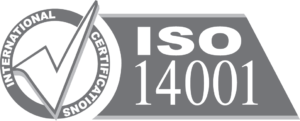
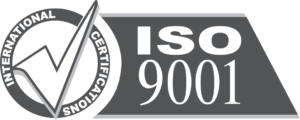

- Every asset we receive from our clients is tracked by serial number so no items will be listed as “unaccounted.”
- If PlanITROI cannot add value to particular unit and remarket it for the highest amount possible, the unit is securely transported to our downstream partners for proper recycling.
- We remarket 90% of the assets we receive.
- These same environmental best practices are held to throughout the globe as we serve clients worldwide.
Downstream Partner Requirements
It’s important for clients to know that there is no such thing as an “EPA-Certified Electronics Processing Facility.” The EPA does not audit electronics recycling operations and provide an approval designation. That is why it is necessary to work with an ITAD services provider that has a downstream process that is ISO 14001 certified and e-Stewards or R2v3 certified as well. These certifications require third-party audits and need to be maintained.
- PlanITROI randomly audits its downstream partners and also verifies that certifications are up to date.
- Certificates of Recycling are provided for all items sent through the recycling process. No items will be shown as unaccounted units.
- Proper recycling requires that the downstream partner separate the items received into their base materials, i.e., plastics, glass, metals (ferrous and non-ferrous), etc., and then grinds these materials to a form that can be remarketed to the industry as raw materials.
- No e-waste goes to a landfill or to an incinerator.
- Our downstream partners also utilize RCRA-compliant haulers for transporting the ground and separate materials to manufacturers.
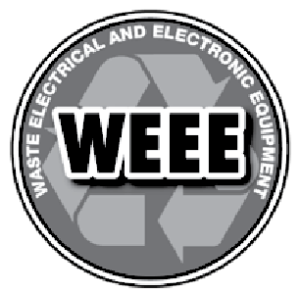 This attention to environmental detail is also good business because certain assets have materials of value that can be reclaimed in the recycling process, thereby further reducing the cost of recycling.
This attention to environmental detail is also good business because certain assets have materials of value that can be reclaimed in the recycling process, thereby further reducing the cost of recycling.
In addition to U.S. federal, state, and local requirements, PlanITROI holds to the WEEE requirements for the European Union and all country-specific environmental regulations.

Carbon footprint data that supports any “Green Initiatives”
Most calculations of Carbon footprint focus on assets that are recycled not reused. Or they focus on energy utilization. PlanITROI focuses on all Carbon footprint savings to help benefit the environment and our client’s wallets.
PlanITROI utilizes environmental benefits impact calculators to show clients the impact the re-use path has versus recycling.
The calculator provides quantitative results for both environmental and economic benefits. The environmental benefits for re-use of laptops, desktop, servers, mobile phones and equivalent items far out-weigh the benefits of recycling. Recycling is the last acceptable option in an environmentally oriented program.
Environmental Impact measurements, by metric, are provided for:
- Energy savings (kWh)
- Primary Materials Savings (kg)
- GHG – Greenhouse Gas Emissions (by kg of Carbon Equivalents)
- Air Emissions (kg)
- Water Emissions (kg)
- Toxic Material Savings
- Energy Cost Savings ($)


PlanITROI Quality, Environmental, Health & Safety Policy
Our Company recognizes that the disciplines of environmental, quality, health and safety management are an integral part of its management function. Our Company views these as a primary responsibility and to be the key to good business in adopting appropriate environmental, quality, health and safety standards.
PlanITROI’s Quality, Environmental, Health and Safety Policy calls for continual improvement in its environmental, quality, health and safety management activities and business will be conducted according to the following principles…
We are committed to:
- Specializing in Asset Value Recovery programs for companies with expiring IT assets.
- Maintaining a zero tolerance for focus materials entering a landfill as an end of life policy and will protect the environment by maintaining the highest possible standards of recycling and reuse excellence. Focus Materials and our Waste Streams will be managed throughout the recycling chain to final disposition with due diligence to protect the environment.
- Protection of the environment including prevention of pollution and the the prevention of injury and ill health to all of our interested parties.
- Eliminating hazards and reducting OH&S/IMS risks and consultation and participation of workers and their representative’s where they exist.
- Providing a clean, safe and regulatory compliant facility.
- Complying with all legal and other requirements and evaluating these compliance obligations on a regular basis.
- Managing used and end of life electronic equipment based on a reuse, refurbishment, recovery, disposal (RRRD) hierarchy including onsite and downstream materials management throughout the recycling chain.
- Continuous improvement achieved through monitoring of objectives and targets and rigorous evaluation of our Integrated Management System.
- Communicating and reinforcing this policy throughout our company, as well as, to our customers, our suppliers, to the public and all interested parties.
- Communicating with customers of data security issues and addressing their data security and privacy requirements through the secure destruction of data containing devices.
- Training our staff in the needs and responsibilities of environmental, quality, health and safety management.
- Meeting customer requirements and identifying the needs and expectations of our interested parties.
- Reviewing and revising these policies to insure they remain suitable and appropriate.
- Social accountability values, including the prohibition of prison labor and child labor as well as meeting the commitment to R2v3 Core 1 (d).
- A Non-Discrimination Policy of fair and equal treatment of all workers that is communicated on a yearly basis to all of our employees.


